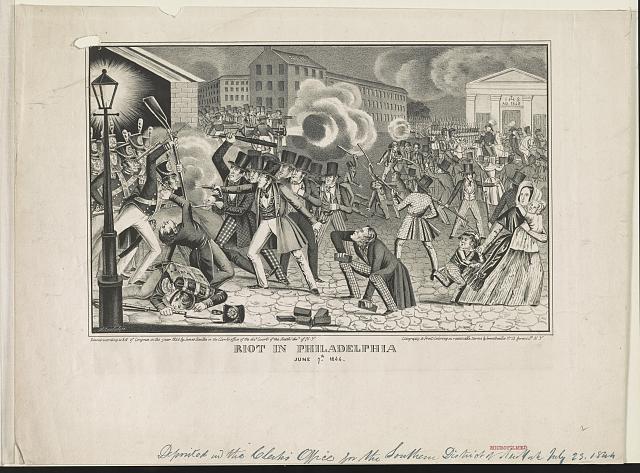A few weeks ago, AHA Today interviewed Celeste Sharpe, a graduate from George Mason University, who’s produced, what is probably, the first born-digital dissertation in the discipline of history. When asked about her future publication plans, Sharpe responded: “While the dissertation-as-proto monograph pipeline is well established, there isn’t something similar for digital projects.” In fact, creators of digital projects often face significant barriers to publishing in traditional scholarly outlets. Many digital projects don’t work as journal articles or books. Interactive and multimedia elements do not translate well to the printed page, and projects that have nonlinear narrative structures or modes of argumentation often don’t fit the expectations of the discipline.

Can history accommodate nontraditional modes of review and publication? Wikimedia Commons
Can history accommodate modes of review and publication that would provide greater flexibility and enable nontraditional research outputs to flourish? Stephen Robertson, Lincoln Mullen, and their colleagues at the Roy Rosenzweig Center for History and New Media (RRCHNM) think so, and have created a conference and associated digital publication to explore this proposition. Current Research in Digital History (CRDH) will be hosted annually at the RRCHNM, with the first one on March 17, 2018.
In fields like bioinformatics, where researchers advance scholarship by developing new datamining algorithms, a journal article describing the work is often what’s cited and listed on a CV, not the algorithm itself. Likewise, in computer science, publications like the Journal of Open Research Software publish “metapapers” that describe the software. In still other disciplines, peer reviewed conference proceedings play an important function in presenting research in progress to colleagues within and outside the field. In these fields, publication is incremental, with short articles providing progress reports or preliminary findings. In history, we expect far more complete ideas and research before publication.
Allowing work in progress to be part of the scholarly conversation will expand the possibility for who is able to contribute to the discipline. The CRDH digital conference proceedings—which will include articles that focus on arguments being put forward rather than project descriptions—will be peer reviewed by members of the program committee. During the conference sessions, commentators will provide further feedback, and scholars will be able to revise their articles before the digital publication is released. Given the dearth of avenues for serious peer review and citation of digital history, this publication will fill a void in our field.
Each annual conference and volume will have some panels that are connected to a historical theme or subject, and that encourage interaction between scholars in a field working with both digital and non-digital media. In 2018, one third of the sessions will focus on the theme of the history of slavery; the rest will be open to any topic or time period. Proposals for the conference are due by the end of September, so be sure to contact the organizers soon if you are interested in participating.
Our discipline needs more thoughtful and directed innovation. Community building efforts like these that promote interaction between digital scholars and the wider discipline help put digital history in conversation with related scholarship, pluralize the way we think about publishing, and provide a vital avenue for peer reviewing digital projects.
This post first appeared on AHA Today.
This work is licensed under a Creative Commons Attribution-NonCommercial-NoDerivatives 4.0 International License. Attribution must provide author name, article title, Perspectives on History, date of publication, and a link to this page. This license applies only to the article, not to text or images used here by permission.



